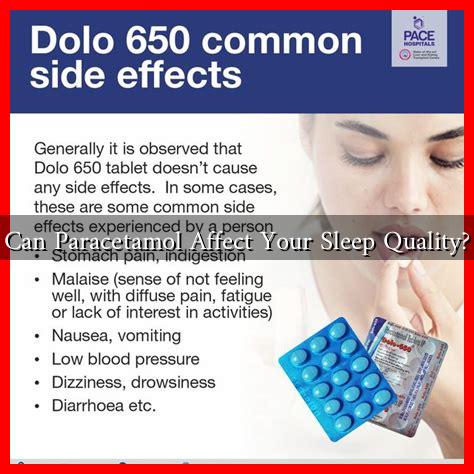-
Table of Contents
Can Paracetamol Affect Your Sleep Quality?
Paracetamol, also known as acetaminophen, is one of the most commonly used over-the-counter medications for pain relief and fever reduction. While it is generally considered safe when used as directed, there is growing interest in understanding its potential effects on sleep quality. This article explores the relationship between paracetamol and sleep, examining how this widely used analgesic may influence our nightly rest.
Understanding Paracetamol
Paracetamol is often recommended for various conditions, including headaches, muscle aches, arthritis, backaches, toothaches, colds, and fevers. It works by inhibiting the production of prostaglandins, chemicals in the body that promote inflammation, pain, and fever. Despite its effectiveness, the impact of paracetamol on sleep is not as well understood.
The Link Between Pain Relief and Sleep Quality
Pain can significantly disrupt sleep, leading to a vicious cycle where poor sleep exacerbates pain and vice versa. By alleviating pain, paracetamol may indirectly improve sleep quality for individuals suffering from conditions that cause discomfort. However, the relationship is not straightforward, and several factors come into play:
- Type of Pain: Chronic pain conditions, such as arthritis or fibromyalgia, can severely impact sleep. In these cases, effective pain management with paracetamol may lead to improved sleep.
- Dosage and Timing: The timing of paracetamol intake can influence sleep. Taking it too close to bedtime may lead to disturbances in sleep patterns.
- Individual Differences: Each person’s response to medication varies. Some may experience improved sleep, while others may not notice any change.
Research Findings on Paracetamol and Sleep
Several studies have investigated the effects of paracetamol on sleep quality. A notable study published in the journal *Sleep* found that individuals who took paracetamol before bedtime reported better sleep quality compared to those who did not. The researchers suggested that the pain-relieving properties of paracetamol could help reduce sleep disturbances caused by discomfort.
Conversely, a study published in *The Journal of Clinical Sleep Medicine* indicated that while paracetamol may help with pain-related sleep disturbances, it could also lead to increased wakefulness in some individuals. This suggests that while paracetamol can be beneficial for certain pain-related sleep issues, it may not be a one-size-fits-all solution.
Potential Side Effects and Considerations
While paracetamol is generally safe for short-term use, it is essential to consider potential side effects that could indirectly affect sleep quality:
- Liver Damage: Overuse of paracetamol can lead to liver damage, which may cause discomfort and disrupt sleep.
- Gastrointestinal Issues: Some individuals may experience gastrointestinal side effects, such as nausea or upset stomach, which can interfere with sleep.
- Dependency on Medication: Relying on paracetamol for sleep may lead to psychological dependency, making it difficult to sleep without it.
Best Practices for Using Paracetamol
If you are considering using paracetamol to improve your sleep quality, here are some best practices to keep in mind:
- Consult with a healthcare professional before starting any medication, especially if you have underlying health conditions.
- Use the lowest effective dose for the shortest duration necessary.
- Avoid taking paracetamol too close to bedtime to minimize potential disruptions in sleep patterns.
- Monitor your sleep quality and overall health regularly to assess the effectiveness of the medication.
Conclusion
In summary, paracetamol can have both positive and negative effects on sleep quality, primarily depending on the individual’s circumstances. While it may help alleviate pain and improve sleep for some, others may experience disruptions or side effects that counteract its benefits. It is crucial to approach the use of paracetamol thoughtfully and consult with healthcare professionals to ensure safe and effective use. For more information on sleep health, you can visit the National Sleep Foundation’s website at sleepfoundation.org.


